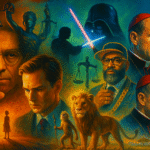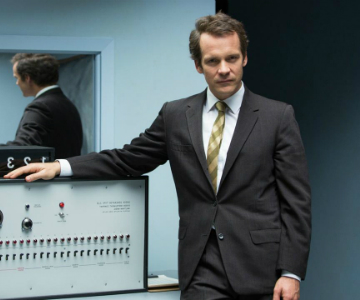
Don’t Look Up Is A Representation Of Humanity’s Collective Attention Deficit

The song ‘Gangnam Style’ by the South Korean artist Psy stormed the music scene around 2013. Psy did not perform the song in English, and the dance routine was not the usual norm on American TV. At the time of this writing, the YouTube plays for this song sits at over 4 billion; this is more than enough proof of Longfellow’s assertion that music is a universal language, but some may ask, how did a song like that seep into global pop culture and go viral? Amidst the diversity of media types in cyberspace, what do people consume? What do people find interesting? What captures people’s attention?
Many films have done a fair job of showing what people care about, but in a while, none has done a splendid job of showing people’s priority, like Adam Mckay’s Don’t Look Up. As with Mckay’s manner of delving into hot-button topics with his movies like The Big Short or Vice, this film theorizes what man’s reaction would be to an apocalyptic event. The basic synopsis is; an asteroid is heading toward earth, and a group of scientists has confirmed that if this asteroid hits land, the whole planet will be toast. The scientists who made this discovery tried to get this information through the proper channels. These efforts meet with excessive red tape despite the importance of their knowledge. The president (Merryl Streep) is more concerned with re-election and can only pay attention if this asteroid situation becomes a political tool to win elections.
A typical example of where people’s interests lie, as depicted in this story, is when these scientists try to use the media to get this information out to the public. They get a spot on a TV show hosted by Brie (Cate Blanchett) and Jack (Tyler Perry), who appear to be more interested in keeping their show entertaining, so they sensationalize the breakup of a music artist and want to listen to the scientists as an aside. Despite the desperation and a tinge of drama displayed on the show by the scientists, which generally should get people’s attention because the world as we know it is coming to an end, it appears futile. A post-show analysis showing the trend of online conversations shows that people are more interested in Riley (Ariana Grande) and DJ Chello’s (Kid Cuddy) relationship drama than a planet-killing comet that will bring about the end of us all. The percentage differences are two worlds apart.
Suppose one compares the aforementioned Gangnam Style stats with another video that addresses climate change. In that case, we might experience the same polarity with the results as we did with the killer comet and DJ Chello’s relationship. If one were to place a gambit on all the videos ever made about climate change, to test if the sum of them all would amount to half of the views that Gangnam Style got, this is a gambit that one might lose. There are a lot of videos out there that are representative of a Gangnam-style type of content.
The streaming services that people watch reflect the choices that people make. The pricing of some of these streaming services is a clear giveaway as to the paying customer’s interests. An example is Curiosity Stream, a streaming service that focuses mainly on documentaries, scientific discoveries, and historical facts that may be difficult to find elsewhere. If one were to compare the cost of Curiosity Stream and other streaming services like Netflix, Prime Video, or HBO max, the very same polarity would exist as with the previous instances.
For an observant person, it won’t take long to notice that Adam Mckay uses this film to mimic the coronavirus response in America, especially during the precipitation of the virus. Some may guess that Merryl Streep was Donald Trump, Leonardo Dicaprio was Dr. Fauchi, and the comet was the coronavirus; viewers are free to use their imaginative minds to fill in the rest. But one thing that must remain food for thought is; suppose the world has difficulty comprehending the severity of a planet-destroying comet. In that case, it is questionable how people will understand or relate to the dangers associated with global warming or climate change that scientists have purported to lead to the same result as the deadly comet impacting earth, which is the total extinction of humanity.


















